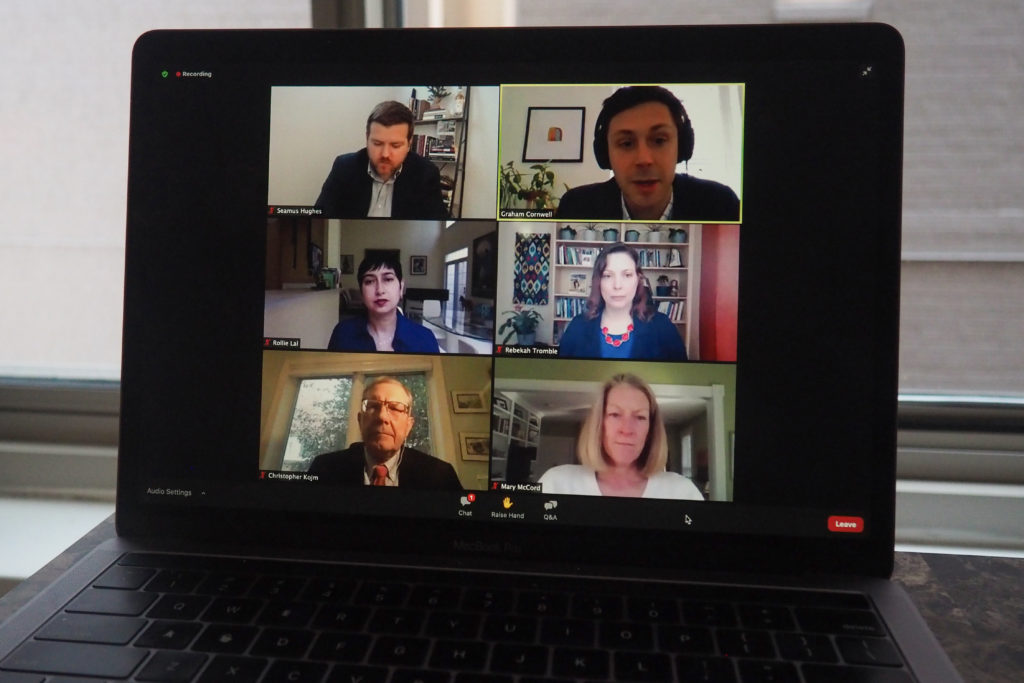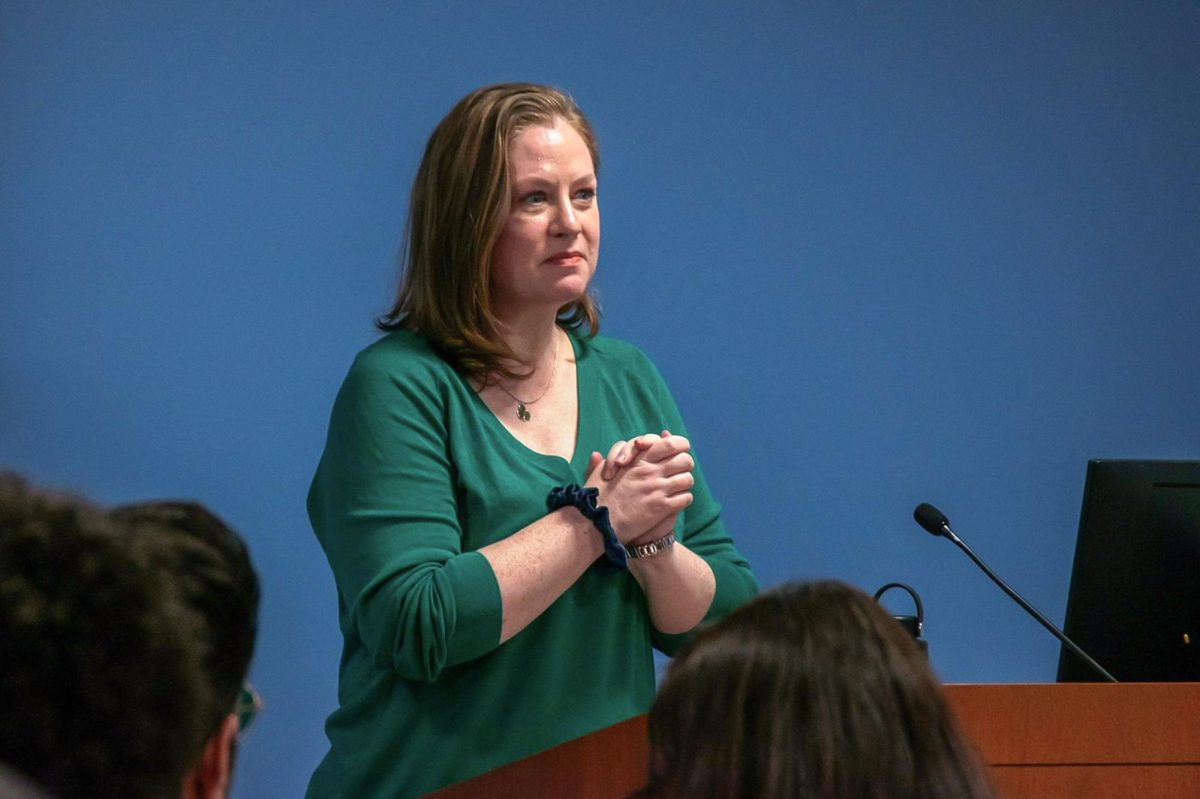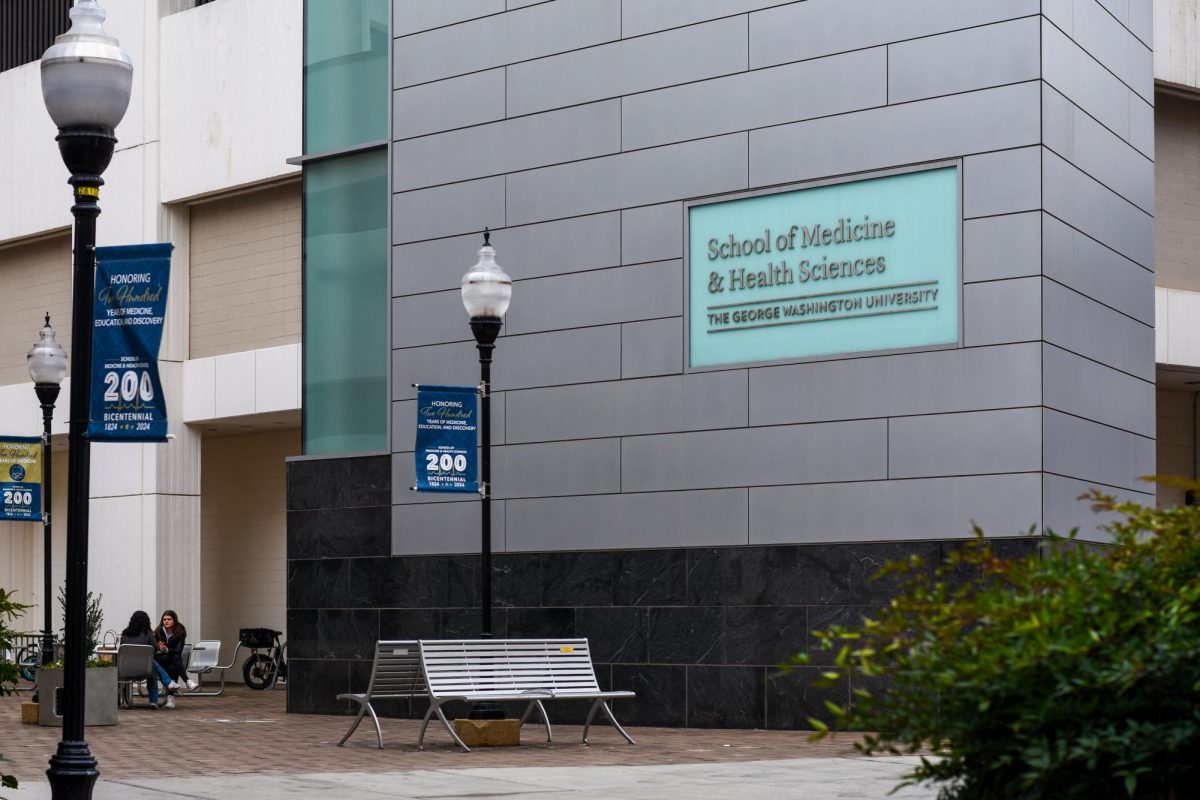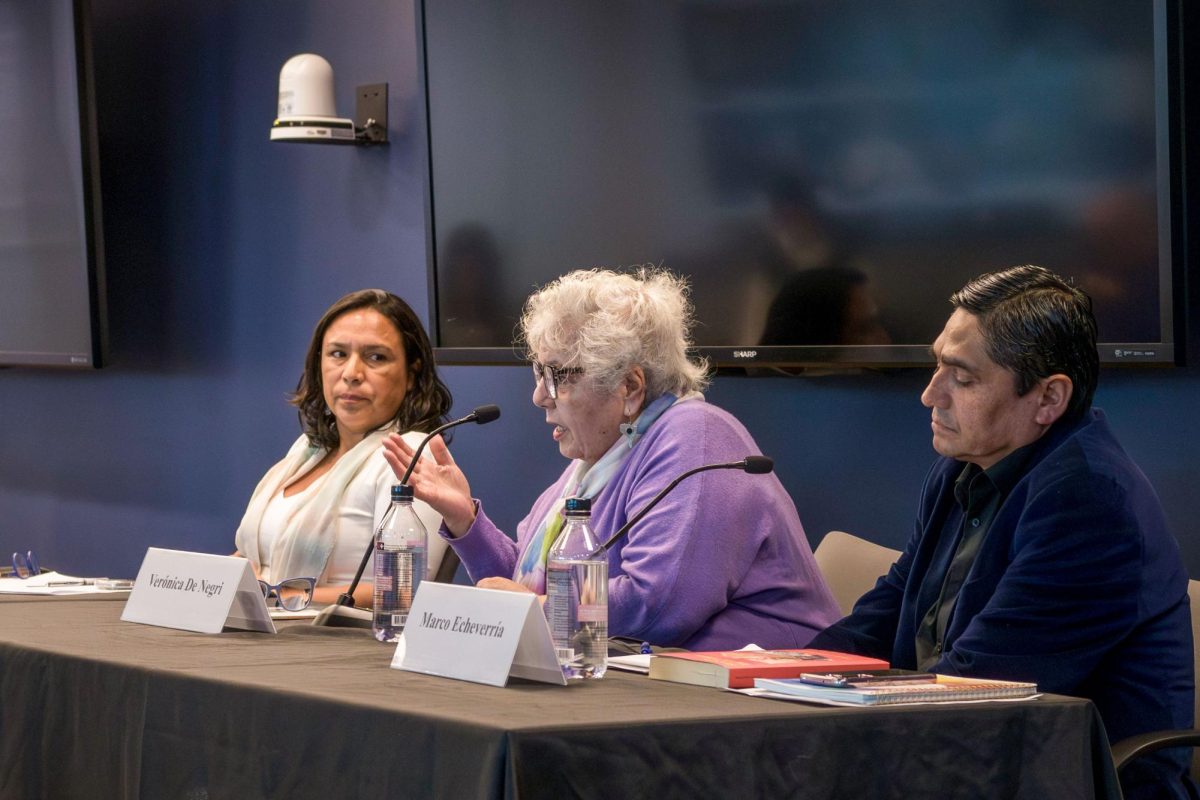A panel of media experts unpacked social media’s role in domestic terrorism last week as they reassessed the U.S. Capitol riot.
Three faculty members and two staff members from the Program on Extremism covered topics like the rise of conspiracy theories through QAnon, social media companies’ accountability and their legal connection to domestic terrorism. Graham Cornwell, the assistant dean of research for the Elliott School, moderated the roundtable.
Here are some of the key topics they discussed:
QAnon and conspiracy theories’ influence
Ronnie Lal, an associate professor of international affairs, said two forces “created” the situation at the Capitol – the rise of conspiracy as a political force and the rise of technology as a “force multiplier.” She said QAnon has rapidly spread misinformation in an emotional and “gripping” way through technology.
“The use of conspiracy is very powerful because it feeds on ideas that people have been hearing since they were little,” Lal said.
Mary McCord, a POE fellow, said the “radicalization” and violence present during the Capitol riot share similar parallels with foreign terrorist organizations in how participants used social media to share ideas. She said conspiracy theories have joined with other “extremist theories” by aligning with the same beliefs people agree on and creating a “power in numbers” dynamic.
“You have people who start to dabble in conspiracy theories, they start to dabble in extremist content and then there is gradually a radicalization toward the willingness to go out and actually commit an act of violence,” McCord said.
Christopher Kojm, a professor of international affairs, said politicians can and will “weaponize” conspiracy theories because of the influence that simple explanations hold in the general public, especially related to topics like the opioid epidemic and unemployment.
“This is a great big social problem that permeates the entirety of this country and every student and every person on this call has a responsibility to work on behalf of truth in your career,” Kojm said.
Holding social media accountable
Rebekah Tromble, an associate professor of media and public affairs and director of the Institute for Data, Democracy and Politics, said social media has made the spread of disinformation and hate speech easier.
She added that there are two ways to achieve platform accountability – better regulatory frameworks and public mechanisms that legislators can use to oversee social media companies.
Seamus Hughes, the deputy director of POE, said the connections the rioters were able to make with other attendees in the District via social media will play a role in de-platforming some of the rioters.
“If you look at extremist groups like ISIS or Al-Qaeda, when you took them off of mainstream sites, the recruitment pool for radicalization, for folks who would go and travel significantly dropped,” Hughes said.
Legal consequences of domestic terrorism
McCord, the POE fellow, said the Capitol riot fits the legal definition for domestic terrorism. It is “critical” for the FBI to use social media and video to identify rioters and for evidence to bring additional charges against them, she said.
“Those who are involved in organizing, those who are plotting the more extensive violence, those who are in conspiracies together, we will see more significant charges so this is not the end,” McCord said.








